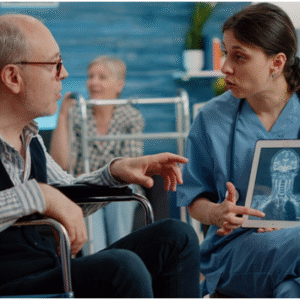Why Postpartum Depression Should Be Addressed?

There are not many occasions in life when we feel special and emotionally happy and contented. The modern life of rush and competition has left us less opportunities to be excited and happy. One such time is welcoming a baby into the world. Welcoming the tiny human into this world is surely a great feeling for the parents. This is all that the world loves to tell us. There are not many people who fearlessly face the other side of the fact of becoming parents.
We can take the help of a health tech startup to find out more about postpartum mental health. While it can be one of the most cherished moments, there are struggles as well. Especially women, who give birth to a new life, often fail to feel the excitement or happiness that the world loves to show and see. But the mental struggle is more real than most of us would like to admit. PPD or postpartum depression is as real as any other mental health issue. Giving birth not only affects a woman’s body, but also her mental health. PPD is the complex mix of behavioral, emotional, and physical changes through which a woman goes after giving birth. It is a major form of depression that starts within the first 4 weeks after bringing the baby into the world. It is linked to the social, chemical, and psychological changes through which a new mother goes. It is treatable with counseling and medication.
Looking for a counsellor in Singapore? A Kind Place has a team of professional counsellors that provides compassionate and effective support for mental health and personal challenges. Contact us today to learn more about our counselling services and how we can help you.
The chemical changes cause a rapid drop in some hormones right after delivery. The actual link between depression and this drop is not yet clear. During pregnancy, levels of two hormones, progesterone and estrogen increase tenfold in the female system. After delivery, the levels of these two hormones drop sharply. By the first three days after delivery, the levels go back to the pre-pregnancy stages. The psychological and social changes during pregnancy also cause depression. Women even develop a more serious condition called postpartum psychosis. Even the fathers feel depressed as well after having the baby.
Symptoms
Common symptoms include frequent mood changes, lower libido, sever fatigue, appetite changes along with troubled sleeping. These symptoms are also seen in depression as well. But there are some other symptoms that are not common to depression. Women might feel like crying all the time without any valid reason. There is a feeling of being unable to bond with the baby. Depressed mode with severe crankiness and anger is prevalent. Thoughts of helplessness, hopelessness, and worthlessness along with suicide or death plague the new moms.
PPD can be treated differently and it depends on the symptoms and their severity. Psychotherapy, antidepressant or anti-depressant medications, education, and group emotional support are some of the effective treatment options. In the case of postpartum psychosis, psychosis treating drugs are included. Sometimes it is necessary to go for the hospital admission. Even breastfeeding mothers can consume medicines for anxiety, depression, and even psychosis. It is necessary to stay under the supervision of a doctor to ensure proper treatment.




